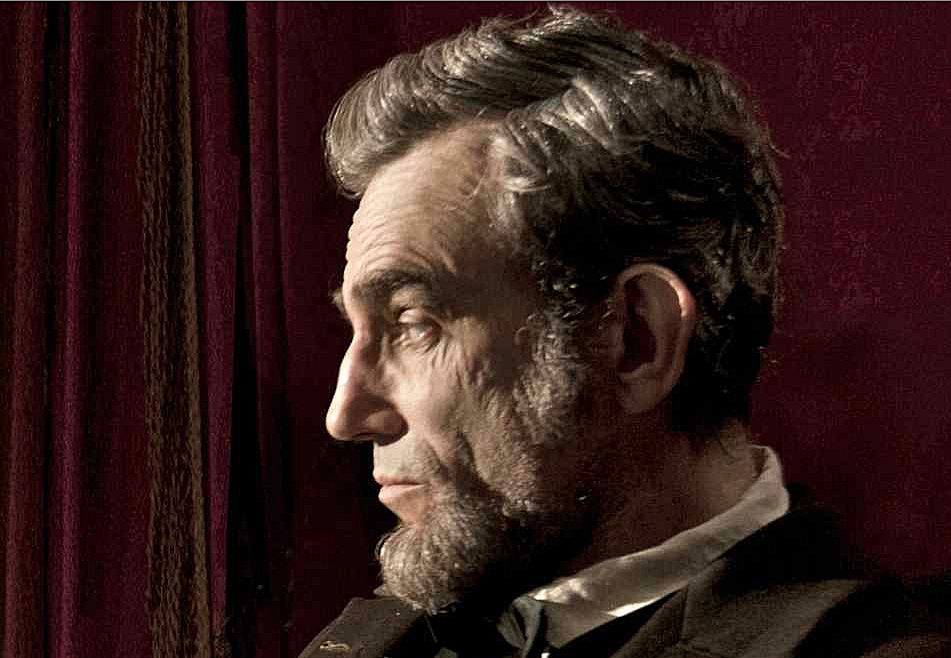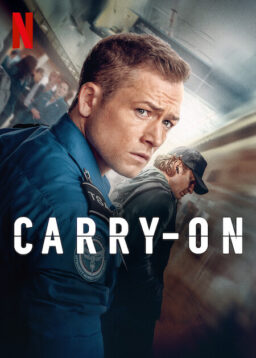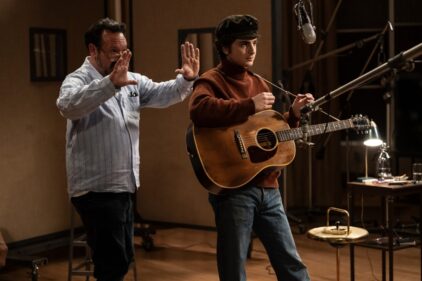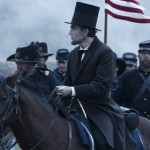A saintly wheeler-dealer

I’ve rarely been more aware than during Steven Spielberg’s “Lincoln” that Abraham Lincoln was a plain-spoken, practical, down-to-earth man from the farmlands of Kentucky, Indiana and Illinois. He had less than a year of formal education and taught himself through his hungry reading of great books. I still recall from a childhood book the image of him taking a piece of charcoal and working out mathematics by writing on the back of a shovel.
Lincoln lacked social polish but he had great intelligence and knowledge of human nature. The hallmark of the man, performed so powerfully by Daniel Day-Lewis in “Lincoln,” is calm self-confidence, patience and a willingness to play politics in a realistic way. The film focuses on the final months of Lincoln’s life, including the passage of the 13th Amendment ending slavery, the surrender of the Confederacy and his assassination. Rarely has a film attended more carefully to the details of politics.
Lincoln believed slavery was immoral, but he also considered the 13th Amendment a masterstroke in cutting away the financial foundations of the Confederacy. In the film, the passage of the amendment is guided by William Seward ( David Strathairn ), his secretary of state, and by Rep. Thaddeus Stevens ( Tommy Lee Jones ), the most powerful abolitionist in the House. Neither these nor any other performances in the film depend on self-conscious histrionics; Jones in particular portrays a crafty codger with some secret hiding places in his heart.
The capital city of Washington is portrayed here as roughshod gathering of politicians on the make. The images by Janusz Kaminski , Spielberg’s frequent cinematographer, use earth tones and muted indoor lighting. The White House is less a temple of state than a gathering place for wheelers and dealers. This ambience reflects the descriptions in Gore Vidal’s historical novel “Lincoln,” although the political and personal details in Tony Kushner’s concise, revealing dialogue is based on “Team of Rivals: The Political Genius of Abraham Lincoln” by Doris Kearns Goodwin. The book is well-titled. This is a film not about an icon of history, but about a president who was scorned by some of his political opponents as just a hayseed from the backwoods.
Lincoln is not above political vote buying. He offers jobs, promotions, titles and pork barrel spending. He isn’t even slightly reluctant to employ the low-handed tactics of his chief negotiators (Tim Blake Nelson , James Spader , John Hawkes ). That’s how the game is played, and indeed we may be reminded of the arm-bending used to pass the civil rights legislation by Lyndon B. Johnson, the subject of another biography by Goodwin.
Daniel Day-Lewis, who has a lock on an Oscar nomination, modulates Lincoln. He is soft-spoken, a little hunched, exhausted after the years of war, concerned that no more troops die. He communicates through stories and parables. At his side is his wife, Mary Todd Lincoln ( Sally Field , typically sturdy and spunky), who is sometimes seen as a social climber but here is focused as wife and mother. She has already lost one son in the war and fears to lose the other. This boy, Robert Todd Lincoln ( Joseph Gordon-Levitt ), refuses the privileges of family.
There are some battlefields in “Lincoln” but the only battle scene is at the opening, when the words of the Gettysburg Address are spoken with the greatest possible impact, and not by Lincoln. Kushner also smoothly weaves the wording of the 13th Amendment into the film without making it sound like an obligatory history lesson.
The film ends soon after Lincoln’s assassination. I suppose audiences will expect that to be included. There is an earlier shot, when it could have ended, of President Lincoln walking away from the camera after his amendment has been passed. The rest belongs to history.


Roger Ebert
Roger Ebert was the film critic of the Chicago Sun-Times from 1967 until his death in 2013. In 1975, he won the Pulitzer Prize for distinguished criticism.

- Daniel Day-Lewis as Lincoln
- Tommy Lee Jones as Stevens
- Sally Field as Mary Todd
- David Strathairn as Seward
Directed by
- Steven Spielberg
- Tony Kushner
Leave a comment
Now playing.

The Room Next Door

The Brutalist

Mufasa: The Lion King

September 5

The Last Showgirl

The Lord of the Rings: The War of the Rohirrim

Dirty Angels

Theatre of Thought

Nickel Boys
Latest articles.

The Great Performances of 2024, Part One

Peacock Turns the Rom-Com Into a Game of Death in the Charming “Laid”

No Box He Won’t Escape From: James Mangold on “A Complete Unknown”

Chaz Ebert on the Slate Podcast “Death, Sex & Money”
The best movie reviews, in your inbox.
The Definitive Voice of Entertainment News
Subscribe for full access to The Hollywood Reporter
site categories
‘lincoln’: film review.
Daniel Day-Lewis stars as the 16th president in the historical drama directed by Steven Spielberg and written by Tony Kushner.
By Todd McCarthy
Todd McCarthy
- Share on Facebook
- Share to Flipboard
- Send an Email
- Show additional share options
- Share on LinkedIn
- Share on Pinterest
- Share on Reddit
- Share on Tumblr
- Share on Whats App
- Print the Article
- Post a Comment

Far from being a traditional biographical drama, Lincoln dedicates itself to doing something very few Hollywood films have ever attempted, much less succeeded at: showing, from historical example, how our political system works in an intimate procedural and personal manner. That the case in point is the hair-breadth passage by the House of Representatives of the epochal 13th Amendment abolishing slavery and that the principal orchestrator is President Abraham Lincoln in the last days of his life endow Steven Spielberg ‘s film with a great theme and subject, which are honored with intelligence, humor and relative restraint. Tony Kushner ‘s densely packed script has been directed by Spielberg in an efficient, unpretentious way that suggests Michael Curtiz at Warner Bros. in the 1940s, right down to the rogue’s gallery of great character actors in a multitude of bewhiskered supporting roles backing up a first-rate leading performance by Daniel Day-Lewis . The wall-to-wall talk and lack of much Civil War action might give off the aroma of schoolroom medicine to some, but the elemental drama being played out, bolstered by the prestige of the participants and a big push by Disney, should make this rare film about American history pay off commercially.
Related Stories
'up in smoke,' 'pride of the yankees,' 'beverly hills cop,' 'no country for old men,' 'the social network' inducted into national film registry, how 'september 5' roots are in steven spielberg's 'munich'.
First unveiled at an unannounced sneak preview at the New York Film Festival on Oct. 8, Lincoln will receive its official world premiere on Nov. 8 at the AFI Film Festival in Los Angeles in advance of its Nov. 9 limited opening and wider release Nov. 16.
The Bottom Line An absorbing, densely packed, sometimes funny telling of the 16th president's masterful effort in manipulating the passage of the 13th Amendment.
Concentrating on the tumultuous period between January 1865 and the conclusion of the Civil War on April 9 and Lincoln’s assassination five days later, on Good Friday, this is history that plays out mostly in wood-paneled rooms darkened by thick drapes and heavy furniture and, increasingly, in the intimate House chamber where the strength of the anti-abolitionist Democrats will be tested against Lincoln’s moderates and the more zealous anti-slavery radicals of the young Republican Party.
Occasionally, there are glimpses of life outside the inner sanctums of government, first on the battlefield, where black Union troops join in the vicious hand-to-hand combat where the mud renders the gray and blue uniforms all but indistinguishable, then in the dusty streets of the nation’s capital and in the verdant surrounding countryside.
The stiffest challenge facing Kushner was to lay out enough exposition in the early going to give viewers their bearings while simultaneously jump-starting the film’s dramatic movement. Quite a bit of information simply has to be dropped in quickly to get it over with — Mary Todd Lincoln’s continuing depression over the death of a son three years earlier, her husband’s re-election the previous November, the need for Lincoln to win over some 20 Democrats to achieve the two-thirds majority required to pass — but the estimable playwright who won a Pulitzer for 1992’s Angels in America mostly manages to cover so many mandatory issues by plausibly making them the subjects of the characters’ vivid conversation.
Particularly helpful in this regard are the intimate talks between Lincoln (Day-Lewis) and his most valued adviser, Secretary of State William Seward (David Strathairn), as well with his party’s founder Preston Blair (Hal Holbrook, a famous Lincoln in his own time). Having signed the Emancipation Proclamation in 1863 and gotten easy Senate passage of the 13th Amendment the previous April, Lincoln is determined to push the House to act quickly and put his signature on the new law by Feb. 1, before the war is likely to end.
What follows is a course in political persuasion in all its forms: cajoling, intimidation, promises, horse-trading, strong-arming and intellectual persuasion, down-home style. In conversation and physical movement, Lincoln is a deliberate fellow who takes his time, a country lawyer whose rumpled exterior conceals abiding principles and an iron will, a man of no personal vanity or fancy education who is nevertheless unafraid to cite Euclid, notably in his equation of equality = fairness = justice, with which Lincoln frames the slavery issue.
Fundamentally unhappy in his family life with his almost continually complaining wife Mary (a very good Sally Field ), who despairs of being condemned to “four more years in this terrible house,” and oldest son Robert ( Joseph Gordon-Levitt ), a college lad desperate to enlist in the Army over his parents’ objections, Lincoln seems to find the greatest pleasure in spinning amusing life-lesson yarns dating to his lawyering days. The film accrues much-needed levity from these interludes, less from the stories themselves than from the reactions of his captive audiences; by the third or fourth time Lincoln embarks on one of his tales, the polite attention paid by his listeners has descended to “here-he-goes-again” eye-rolling and ill-concealed smirking.
As he demonstrated in Angels in America, Kushner — who co-wrote Munich for Spielberg — is adept at juggling a huge number of characters without confusion. One of the main subplots details the efforts of three Republican roustabouts (James Spader, John Hawkes, Tim Blake Nelson) to use any means necessary to change some minds on the Democratic side while at Lincoln’s behest delaying a high-level Confederate delegation making its way to Washington to talk peace. There also are occasional glimpses of Gen. Ulysses S. Grant (Jared Harris) trying to discern whether the South is ready to call it quits.
But increasingly, attention focuses on Pennsylvania Rep. Thaddeus Stevens ( Tommy Lee Jones ), a lifelong activist for absolute equality among the races philosophically opposed to going along with a watered-down law. The loss of his and other radical Republicans’ support would spell disaster for Lincoln who, in all events, faces a massive challenge that calls on all the political, personal and persuasive skills he has honed over a lifetime.
At the film’s center, then, lies one of the remarkable characters in world history at the critical moment of his life. As Walt Whitman said of Lincoln (as he did of himself), “he contained multitudes,” and Day-Lewis’ sly, slow-burn performance wonderfully fulfills this description. Gangly, grizzled and, as his wife was known to say, “not pretty,” this Lincoln plainly shows his humble origins and is more disheveled than his Washington colleagues. With an astonishing physical resemblance to the real man, Day-Lewis excels when shifting into what was perhaps Lincoln’s most comfortable mode, that of frisky storyteller, especially in the way he seems to anticipate and relish his listeners’ reactions.
But he also is a hard-nosed negotiator with that critical attribute of great politicians in a democracy: an unyielding inner core of principle cloaked by a strategic willingness to compromise in the interests of getting his way. A long scene in which he hashes things out with his cabinet (the single most explicit evocation of Doris Kearns Goodwin’s book Team of Rivals, the one credited partial source of the screenplay) vividly exhibits his skills in action. The rare moments when Lincoln loses his temper are startling but also hint that his outbursts might be preplanned for effect.
Lincoln seems most ill-at-ease in domestic exchanges with his family, especially with his harping wife, to whose repetitive complaints her husband cannot possibly invent any new answers, even if her sorrow is rooted in genuine depression.
The dramatic and raucous vote on the 13th Amendment is both exhilarating and unexpectedly humorous, with much shouting, threatening and fist-waving, fence-straddling Democrats being shamed by their colleagues and a gallery audience (including some blacks) hanging on every yeah and nay, climaxed, of course, by the exaltation of victory. Appomattox, with proud Gen. Robert E. Lee high on his white horse, is briefly shown, and Kushner and Spielberg have invented a novel way of portraying the fateful events at Ford’s Theatre that doesn’t even show John Wilkes Booth.
For whatever reason, the filmmakers have skipped the ripe opportunity to portray one of the most extraordinary and haunting episodes of this entire period, that of Lincoln’s nearly solitary early-morning walk through the streets of Richmond. The partly burning city had just been abandoned by the Confederate government, and Lincoln increasingly became surrounded by awestruck, suddenly free blacks who could scarcely believe who had just entered their midst, some reacting as if he were Jesus incarnate. Finally arriving at the capitol building, he entered the office of Confederate President Jefferson Davis, sat in his chair and quietly drank a glass of water.
In the event, Spielberg directs in a to-the-point, self-effacing style, with only minor instances of artificially inflated emotionalism and a humor that mostly undercuts eruptions of self-importance. It’s a conscientious piece of work very much in the service of the material, in the manner of the good old Hollywood pros, without frills or grandiosity. At the same time, however, it lacks that final larger dimension and poetic sense such as can be found in John Ford’s great 1939 Young Mr. Lincoln, to which Spielberg’s film is a biographical and thematic bookend.
Further helping matters is the mostly subdued score by John Williams, whose over-the-top contribution to War Horse last year proved so counterproductive to that film’s effect. Working predominantly in shades of blue and black, cinematographer Janusz Kaminski takes a similarly straightforward approach, while the period evocation achieved by many hands led by production designer Rick Carter, costume designer Joanna Johnston and the makeup and hair team is detailed and lacking in embalmed fastidiousness.
Other than Day-Lewis, acting honors go to Jones, who clearly relishes the rich role of Stevens and whose crusty smarts prove both formidable and funny. Very much a good guy here, Stevens in earlier cinematic days was always portrayed as an extremist villain, both in The Birth of a Nation and in the odd 1943 Andrew Johnson biographical drama Tennessee Johnson.
Venue: AFI Film Festival (closing night) Release: Friday, Nov. 9 (Disney/Touchstone) Production: DreamWorks, 20th Century Fox, Reliance Entertainment , Amblin Entertainment , Kennedy/Marshall Productions Cast: Daniel Day-Lewis, Sally Field, David Strathairn, Joseph Gordon-Levitt, James Spader, Hal Holbrook, Tommy Lee Jones, John Hawkes, Jackie Earle Haley, Bruce McGill, Tim Blake Nelson, Joseph Cross, Jared Harris, Lee Pace Director: Steven Spielberg Screenwriter: Tony Kushner, based in part on the the book Team of Rivals: The Political Genius of Abraham Lincoln , by Doris Kearns Goodwin Producers: Steven Spielberg, Kathleen Kennedy Executive producers: Daniel Lupi, Jeff Skoll, Jonathan King Director of photography: Janusz Kaminski Production designer: Rick Carter Costume designer: Joanna Johnston Editor: Michael Kahn Music: John Williams Rated PG-13, 149 minutes
THR Newsletters
Sign up for THR news straight to your inbox every day
More from The Hollywood Reporter
‘the brutalist’, ‘anora’ set the pace with 7 london critics’ circle film awards noms each, a black activist and ex-neo nazi talk, a drag queen inherits a farm: netflix’s u.k. doc fund winners, lars eidinger is a dysfunctional father in the trailer for tom tykwer’s ‘das licht’, nancy meyers didn’t intend to make ‘the holiday’ a holiday movie, glen powell erotic thriller ‘homewreckers’ lands at legendary after bidding war (exclusive), ‘emilia pérez’ breakout karla sofía gascón to star in trans fairy tale ‘las malas’ (exclusive).
- Skip to main content
- Keyboard shortcuts for audio player
'Lincoln': A Great Emancipator, But Not Quite A Saint
Ian Buckwalter

Daniel Day-Lewis takes on one of America's most famous presidents in Lincoln . DreamWorks hide caption
- Director: Steven Spielberg
- Genre: Drama
- Running time: 159 minutes
Rated PG-13 for an intense scene of war violence, some images of carnage and brief strong language
With: Daniel Day Lewis, Joseph Gordon-Levitt, Tommy Lee Jones
This election season, pundits have been fond of pointing out the near-50/50 split of the electorate and talking about how the American people are as deeply divided as at any other time in our history. The opening moments of Lincoln put those hyperbolic claims in perspective, as Steven Spielberg — with his usual flair for highlighting how truly ugly war really is — shows a nation so divided that its opposing factions are killing one another in numbers so extreme that the bodies are literally piling up on top of one another.
There's also a lot of talk today about the incivility of the discourse between our elected representatives. But Spielberg's depiction of the state of affairs on the floor of Congress during debates over the 13th Amendment, abolishing slavery, is another shot of cold water to the face.
The conflicts here between the congressional Democrats (who oppose the amendment) and the Republicans (who were themselves fostering a shaky alliance between opposed internal camps) are only barely more civil than the soldiers on the battlefields. Not even wartime and daily national tragedy is enough to keep these politicians from sniping at one another so viciously that it makes the most heated modern exchanges feel like a legislative love-in.
Presiding over all of this, with a reputation for nobly rising above the fray, is Abraham Lincoln, here portrayed by Daniel Day-Lewis in a performance so effortless and invisible that it's easy to forget this is an actor playing Lincoln and not the man himself.
Day-Lewis' Lincoln is soft-spoken and folksy, with a gentle, reedy voice unlike that of many of the actors who have played the man before, but truer to historical accounts of what he sounded like. That voice, as thin and willowy as the man himself, seems almost incongruous for a man of such charisma and presence — even more so when it becomes clear that Spielberg, along with screenwriter Tony Kushner, has put together a portrait of Lincoln that is as averse to pulling punches as are his battle sequences.
Working from Doris Kearns Goodwin's Lincoln biography, Team of Rivals, Kushner's script looks at just the few months leading up to the end of the war — and, more importantly, to the difficult passage of that 13th Amendment. As the movie begins, Lincoln is far short of the needed votes, and even his Cabinet is fighting his commitment to its passage, which it views as a distraction from and impediment to the coming end of the war.

Sally Field plays Mary Todd Lincoln, whose emotional volatility has been described in terms that lead some contemporary observers to believe she may have suffered from bipolar disorder. DreamWorks hide caption
Sally Field plays Mary Todd Lincoln, whose emotional volatility has been described in terms that lead some contemporary observers to believe she may have suffered from bipolar disorder.
What follows is a campaign of graft, bribery and carefully orchestrated manipulation that is ethically dubious at best, impeachable at worst. A team of men, led by the slimy W.N. Bilbo (James Spader) is tasked by Secretary of State William Seward (David Strathairn) with essentially buying the votes of lame-duck Democrats, while abolitionist firebrand Rep. Thaddeus Stevens (Tommy Lee Jones, in a performance just as central and Oscar-worthy as Day-Lewis') coordinates backroom deals within his own party.
Spielberg's Lincoln is a man of undeniably noble intentions, but one not afraid of getting his hands dirty in pursuit of those goals. The true genius of Day-Lewis' performance is in how he allows just a glimpse at the passion, rage and Machiavellian drive beneath the surface of a man given to telling wry, folksy parables to get his points across.
Even with the narrow focus, the film sometimes bites off just a little more than it can handle. A subplot about Lincoln's oldest son's (Joseph Gordon-Levitt) determination to serve in the Army feels like a superfluous distraction, while attempts to address the president's complex relationship with his wife, Mary (Sally Field), never quite approach the thoughtful depth and detail of the political maneuvering.
In fact, the human drama of Lincoln is often less compelling than its political plot — which, even given its on-the-record outcome, becomes a gripping political thriller at its peak. Spielberg occasionally slips into the sort of maudlin sentimentality that sank last year's War Horse , viewing Lincoln with a gauzy, deifying reverence that threatens to undercut the surprising toughness of the rest of the movie.
But such moments are thankfully few and far between, allowing for a more genuine admiration of the man: This Lincoln isn't an abstracted, infallible ideal, but rather a deeply conflicted, often lonely leader simply trying to do the right thing — even if that means a few wrong things along the way.
Common Sense Media
Movie & TV reviews for parents
- For Parents
- For Educators
- Our Work and Impact
Or browse by category:
- Movie Reviews
- Best Movie Lists
- Best Movies on Netflix, Disney+, and More
Common Sense Selections for Movies

50 Modern Movies All Kids Should Watch Before They're 12

- Best TV Lists
- Best TV Shows on Netflix, Disney+, and More
- Common Sense Selections for TV
- Video Reviews of TV Shows

Best Kids' Shows on Disney+

Best Kids' TV Shows on Netflix
- Book Reviews
- Best Book Lists
- Common Sense Selections for Books

8 Tips for Getting Kids Hooked on Books

50 Books All Kids Should Read Before They're 12
- Game Reviews
- Best Game Lists
Common Sense Selections for Games
- Video Reviews of Games

Nintendo Switch Games for Family Fun

- Podcast Reviews
- Best Podcast Lists
Common Sense Selections for Podcasts

Parents' Guide to Podcasts

- App Reviews
- Best App Lists

Social Networking for Teens

Gun-Free Action Game Apps

Reviews for AI Apps and Tools
- YouTube Channel Reviews
- YouTube Kids Channels by Topic

Parents' Ultimate Guide to YouTube Kids

YouTube Kids Channels for Gamers
- Preschoolers (2-4)
- Little Kids (5-7)
- Big Kids (8-9)
- Pre-Teens (10-12)
- Teens (13+)
- Screen Time
- Social Media
- Online Safety
- Identity and Community

Parents' Ultimate Guide to First Phones (2024)
- Family Tech Planners
- Digital Skills
- All Articles
- Latino Culture
- Black Voices
- Asian Stories
- Native Narratives
- LGBTQ+ Pride
- Jewish Experiences
- Best of Diverse Representation List

Multicultural Books

YouTube Channels with Diverse Representations

Podcasts with Diverse Characters and Stories
Parents' guide to.

- Common Sense Says
- Parents Say 21 Reviews
- Kids Say 51 Reviews
Common Sense Media Review

Outstanding drama about revered leader's political genius.
Parents Need to Know
Parents need to know that Steven Spielberg's Lincoln isn't a biographical chronicle of Abraham Lincoln's (Daniel Day-Lewis) life in office but rather a political drama about the passing of the 13th Amendment and the end of the Civil War. The most sensitive issues in the movie are its depiction of war (severed…
Why Age 13+?
As would have been accurate for the era, the words "Negroes," "coons," "coloreds
Scenes of the Civil War are mostly shown in passing, but there's definitely carn
Characters drink liquor (some to excess) and smoke cigars, pipes, and hand-rolle
Mary and Abraham Lincoln embrace.
Any Positive Content?
Lincoln is a tribute to a president who took leadership seriously and k
Lincoln is shown to be a thoughtful, intelligent, generous man who, while not as
Parents need to know that Steven Spielberg 's Lincoln isn't a biographical chronicle of Abraham Lincoln's ( Daniel Day-Lewis ) life in office but rather a political drama about the passing of the 13th Amendment and the end of the Civil War. The most sensitive issues in the movie are its depiction of war (severed limbs and bloody battlefields filled with dead soldiers are seen) and occasional strong language, including many era-accurate (but hard to hear today) racial epithets. But overall, the violence is much tamer than in war movies like Saving Private Ryan or Glory , and Lincoln is an educational, entertaining drama that even some mature 5th graders might be ready to handle, if they watch with their parents. (That said, it does move somewhat slowly, so kids hooked on fast-paced entertainment may not be interested.)
To stay in the loop on more movies like this, you can sign up for weekly Family Movie Night emails .
As would have been accurate for the era, the words "Negroes," "coons," "coloreds," and "n-----s" are used to describe African Americans. Other strong language is peppered throughout and includes two uses of "f--k," plus "s--t," "bulls--t," "ass," "goddamn," "crap," "damn," "hell," "son of a bitch," and "oh my God."
Did you know you can flag iffy content? Adjust limits for Language in your kid's entertainment guide.
Violence & Scariness
Scenes of the Civil War are mostly shown in passing, but there's definitely carnage -- including bodies lying dead across battlefields. Mentions of casualties upset the president and his Cabinet. In an Army hospital, amputee soldiers greet the president, and then two soldiers bury a barrel full of severed limbs -- making Robert Todd Lincoln (and likely many viewers) sick. Although we don't see Lincoln's assassination, he's displayed dead, with a pool of blood surrounding him.
Did you know you can flag iffy content? Adjust limits for Violence & Scariness in your kid's entertainment guide.
Drinking, Drugs & Smoking
Characters drink liquor (some to excess) and smoke cigars, pipes, and hand-rolled cigarettes (accurate for the era).
Did you know you can flag iffy content? Adjust limits for Drinking, Drugs & Smoking in your kid's entertainment guide.
Sex, Romance & Nudity
Did you know you can flag iffy content? Adjust limits for Sex, Romance & Nudity in your kid's entertainment guide.
Positive Messages
Lincoln is a tribute to a president who took leadership seriously and knew that, for the United States to continue, slavery would need to be abolished -- even if he wasn't personally a die-hard supporter of equal rights. There are also messages about work-life balance, letting children make their own choices, and realizing that all people have worth and a right to their freedom. Additional themes include integrity, courage, humility, and perseverance.
Positive Role Models
Lincoln is shown to be a thoughtful, intelligent, generous man who, while not as pro-equality as the abolitionists, is definitely insistent that the country abolish slavery. But he's not depicted as perfect: He's willing to play the political game of patronage (giving lame-duck Democrats political appointments) in exchange for getting the 13th Amendment passed. Thaddeus Stevens is the most progressive congressman, and he wants nothing short of total equality. The movie doesn't sit in judgment of or demonize the Confederates or Democrats who don't want to abolish slavery; they're depicted as closed-minded men who just can't fathom changing their way of life.
Where to Watch
Videos and photos.


Parent and Kid Reviews
- Parents Say (21)
- Kids Say (51)
Based on 21 parent reviews
Good to watch as a family--values and civics lessons
If it weren't for the blasphemy the movie would be a 5 star., what's the story.
It's 1865. President Abraham LINCOLN ( Daniel Day-Lewis ) has just been reelected, and it's clear that the Confederacy isn't likely to survive another spring in the ongoing Civil War. But before Lincoln can embrace the likelihood of the South's surrender, he wants -- seemingly more than anything -- to pass the 13th Amendment and definitively outlaw slavery in the entire Union. With the help of Secretary of State William Seward ( David Strathairn ), Lincoln hires three political negotiators ( James Spader , Tim Blake Nelson , and John Hawkes ) to convince at least 20 of the House of Representatives' Democrats (who staunchly oppose the amendment) to vote for the bill (usually in exchange for patronage positions). Meanwhile, in his personal life, Lincoln faces more issues of compromise and sacrifice with his emotional wife, Mary ( Sally Field ), and his desperate-to-enlist son, Robert ( Joseph Gordon-Levitt ).
Is It Any Good?
There's no better film to watch to pay witness to how even our country's greatest historical leaders still had to make quid pro quo overtures across party lines to move forward. Based on Doris Kearns Goodwin's award-winning book Team of Rivals: The Political Genius of Abraham Lincoln , Lincoln is more about the political intrigue of Lincoln's final months than a "biopic" about his personal life. Day-Lewis' performance is a brilliant character study of a legendary man. Unlike the over-the-top characters Day-Lewis played in Gangs of New York and There Will Be Blood , his President Lincoln is an introspective man who tells stories that sound like parables and who exudes a powerful dignity, even in silence. As Mary Todd Lincoln, Field makes a passionate case for the First Lady's instability, stemming from the overwhelming grief of losing son Willie.
But one of the most startling performances in the film, which is so eloquently scripted by Pulitzer Prize-winning playwright Tony Kushner, is courtesy of Tommy Lee Jones as Stevens. The uncompromising abolitionist congressman wants complete racial equality -- not just the legal extinction of slavery -- but even he knows that change sometimes comes in baby steps, not revolution.
Talk to Your Kids About ...
Families can talk about why President Lincoln is still considered one of the most influential presidents of all time. How does the movie's depiction of President Lincoln compare to what you know or have learned about him? Did anything surprise you about his political or personal life?
What does the movie tell us about how politics have changed since the 1860s? Do politicians still have to work together and make compromises, even if they fundamentally disagree? What is the continued relevance of the 13th Amendment?
How closely do you think Lincoln adheres to history? How many liberties with the facts do you think a movie like this can take? Why might filmmakers decide to do that?
How do the figures depicted in Lincoln demonstrate perseverance and courage ? What about humility and integrity ? Why are these important character strengths ?
How does Mary Todd Lincoln's emotional fragility -- in no small part spurred by the fear of one of her remaining sons going to fight in the war that her husband considers necessary -- impact Lincoln's situation?
Movie Details
- In theaters : November 9, 2012
- On DVD or streaming : March 26, 2013
- Cast : Daniel Day-Lewis , Joseph Gordon-Levitt , Sally Field
- Director : Steven Spielberg
- Inclusion Information : Female actors
- Studio : DreamWorks
- Genre : Drama
- Topics : History
- Character Strengths : Courage , Humility , Integrity , Perseverance
- Run time : 150 minutes
- MPAA rating : PG-13
- MPAA explanation : an intense scene of war violence, some images of carnage and brief strong language
- Awards : Golden Globe - Golden Globe Award Winner , NAACP Image Award - NAACP Image Award Nominee
- Last updated : September 24, 2024
Did we miss something on diversity?
Research shows a connection between kids' healthy self-esteem and positive portrayals in media. That's why we've added a new "Diverse Representations" section to our reviews that will be rolling out on an ongoing basis. You can help us help kids by suggesting a diversity update.
Suggest an Update
What to watch next.

Amazing Grace

The Conspirator

Dances with Wolves
Political movies, courtroom dramas, related topics.
- Perseverance
Want suggestions based on your streaming services? Get personalized recommendations
Common Sense Media's unbiased ratings are created by expert reviewers and aren't influenced by the product's creators or by any of our funders, affiliates, or partners.
- Cast & crew
User reviews

By its very making, director Steven Spielberg has written the greatest obituary for one of the greatest leaders of the modern world.
- May 29, 2014
Moving and important...with a mind-blowing performance by Day-Lewis
- Jan 2, 2013
...and the Academy Award for Best Actor goes to....Daniel Day Lewis!
- Feb 7, 2013
Truly a masterful performance by Day-Lewis
- jmclane-57815
- Oct 9, 2022
The Daniel Day Lewis Factor
- littlemartinarocena
- Nov 10, 2012
The political process tangles with "Honest" Abe.
- JohnDeSando
- Nov 14, 2012
Abraham Lincoln deserved a better film
- Feb 2, 2013
It would really help to have read "A Team of Rivals" before watching this...
- Jul 4, 2024
Oscar-worthy performances all around
- Feb 11, 2015
Perhaps the film should have been called "Abe Lincoln and the 13th Amendment".
- planktonrules
- Jul 21, 2013
Interesting film, but definitely not the the definitive version that someone has yet to make.
- fcline-579-762789
- Nov 29, 2012
A capsule of a great president and a director's increasing maturity
- StevePulaski
- Nov 16, 2012
you watch the movie
- Jan 4, 2019
Spielberg's narrow in scope hagiography can't hold a candle to 1988 Gore Vidal TV mini-series
- Nov 11, 2012
Sigh. Daniel does it again
- Dec 28, 2012
Spielberg Delivers A Dialogue Driven Yet Riveting Biopic
- Oct 13, 2016
Should be Titled "13"
- Nov 20, 2012
Lincoln: A reconstruction of an amazing historical character
- gregeichelberger
- Nov 15, 2012
I walked out of the theater wanting to go back in and see it again.
- kentuckybob
- Oct 29, 2012
Struck my heart like a fist to cold oak
- jamestrusler
- Dec 4, 2014
Abe Lincoln and Day Lewis!!
- elo-equipamentos
- Apr 8, 2017
Boring, tedious and pointless. Skip Day-Lewis and focus on Tommy Lee.
- Jan 25, 2013
Lewis is the Lincoln of the acting world
- robhingston
- Nov 22, 2020
My rating: 7
- Jul 29, 2013
awful and dull
More from this title, more to explore, recently viewed.
We sent an email to [email protected]
Didn't you get the email?
By joining, you agree to the Terms and Policies and Privacy Policy and to receive email from the Fandango Media Brands .
By continuing, you agree to the Privacy Policy and the Terms and Policies , and to receive email from the Fandango Media Brands .
Log in or sign up for Rotten Tomatoes
Trouble logging in?
By creating an account, you agree to the Privacy Policy and the Terms and Policies , and to receive email from Rotten Tomatoes and to receive email from the Fandango Media Brands .
By creating an account, you agree to the Privacy Policy and the Terms and Policies , and to receive email from Rotten Tomatoes.
Email not verified
Let's keep in touch.

Sign up for the Rotten Tomatoes newsletter to get weekly updates on:
- Upcoming Movies and TV shows
- Rotten Tomatoes Podcast
- Media News + More
By clicking "Sign Me Up," you are agreeing to receive occasional emails and communications from Fandango Media (Fandango, Vudu, and Rotten Tomatoes) and consenting to Fandango's Privacy Policy and Terms and Policies . Please allow 10 business days for your account to reflect your preferences.
OK, got it!
- About Rotten Tomatoes®
- Login/signup
Movies in theaters
- Opening This Week
- Top Box Office
- Coming Soon to Theaters
- Certified Fresh Movies
Movies at Home
- Fandango at Home
- Prime Video
- Most Popular Streaming Movies
- What to Watch New
Certified fresh picks
- 95% The Brutalist Link to The Brutalist
- 87% The Room Next Door Link to The Room Next Door
- 85% Carry-On Link to Carry-On
New TV Tonight
- 100% Laid: Season 1
- -- Fast Friends: Season 1
- -- Virgin River: Season 6
- -- Beast Games: Season 1
- -- Aaron Rodgers: Enigma: Season 1
- -- The Secret Lives of Animals: Season 1
Most Popular TV on RT
- 95% Black Doves: Season 1
- 79% No Good Deed: Season 1
- 84% One Hundred Years of Solitude: Season 1
- 69% Secret Level: Season 1
- 95% Star Wars: Skeleton Crew: Season 1
- 73% Dexter: Original Sin: Season 1
- -- La Palma: Season 1
- 70% Dune: Prophecy: Season 1
- 68% The Agency: Season 1
- 85% The Day of the Jackal: Season 1
- Best TV Shows
- Most Popular TV
Certified fresh pick
- 79% No Good Deed: Season 1 Link to No Good Deed: Season 1
- All-Time Lists
- Binge Guide
- Comics on TV
- Five Favorite Films
- Video Interviews
- Weekend Box Office
- Weekly Ketchup
- What to Watch
All 74 Disney Animated Movies Ranked
All James Cameron Movies Ranked
What to Watch: In Theaters and On Streaming.
Awards Tour
Where to Watch the 2025 Golden Globe Nominees
Sonic the Hedgehog 3 First Reviews: Come for Sonic and Shadow, Stay for Deranged Jim Carrey
- Trending on RT
- Awards Season
- Best Netflix Movies
- Renewed and Cancelled TV
- TV Premiere Dates
Lincoln Reviews

Spielberg's epic plays like The West Wing in stovepipe hats, and although it may be a little stolid for some, the film brings to life a moment of 19th-century political brinkmanship in captivating style.
Full Review | Original Score: 4/5 | Apr 12, 2024
Daniel Day-Lewis delivers a performance for the ages in Steven Spielberg's solid historical drama. [Full review in Spanish]
Full Review | Original Score: 4/5 | Apr 9, 2024
Lincoln is immersive and respectable, and one of Spielberg’s most disciplined undertakings as a filmmaker.
Full Review | Original Score: 3.5/4 | Sep 21, 2022
While this isn’t a movie dependent on flashy visuals, Spielberg still gives a lot of attention to details. He also goes to great lengths to make this the most vivid portrayal of the 16th president ever to be put on film.
Full Review | Original Score: 4.5/5 | Aug 23, 2022
As a whole, "Lincoln" is a monumental effort that can be valued on an assortment of levels.
Full Review | Original Score: 9/10 | Aug 11, 2022
Lincoln is a triumph.
Full Review | Original Score: 4/4 | Aug 8, 2022
... Spielberg and company are more interested in the work behind the scenes, and they present it with flair and wit absent from the theatrics of political showmanship. This is the story of how leaders and their teams get things done.
Full Review | Jul 9, 2022
A history lesson at its core, but it's cleverly buried beneath one magnificent performance and several strong supporters.
Full Review | Original Score: 6/10 | Dec 2, 2020
A good film blessed with an extraordinary and surefire Oscar caliber performance from Daniel Day-Lewis.
Full Review | Original Score: 3.0/4.0 | Sep 14, 2020
'Lincoln' is not only an avid biopic, it is a pleasant historical lesson that captures the thinking of an era where social ideas were diffused by a political party duality. [Full review in Spanish]
Full Review | Original Score: 7/10 | Jun 25, 2020
In a truly epic first act, the equal of anything in the David Lean canon, Steven Spielberg and his screenwriting collaborator, playwright Tony Kushner, frame the awful dilemma Lincoln faced in what would prove to be the last four months of his life.
Full Review | Jun 19, 2020
Spielberg has put together a film that is reverent but not fawning; familiar but not clichéd; measured but not ponderous.
Full Review | Feb 13, 2020
There is a reason the eternal flame of Lincoln burns so brightly to this day. Thanks to Steven Spielberg, you can see the legacy, meet the man and "feel" the fabric of history...
Full Review | Nov 27, 2019
Lincoln returns dignity to politics.
Full Review | Original Score: 4/5 | Nov 13, 2019
The recurrent themes that crop up again and again in the film are those of sagacity, maturity and the necessary compromises that come as part of ageing.
Full Review | Original Score: 3/5 | Oct 31, 2019
A haunting performance that is one of Lewis' finest in a career filled with towering achievements, proving yet again that he is arguably our greatest living actor.
Full Review | Original Score: 3.5/4 | Jun 8, 2019
Lincoln's flaws don't keep it from succeeding on several levels: as a showcase for Daniel Day-Lewis; and as an uncomfortable and pointed reminder about the hideous racism that's an unavoidable piece of America's makeup.
Full Review | Feb 26, 2019
Lincoln works as well as it does because the Abraham Lincoln biopic chooses to focus on the passage of the Thirteenth Amendment.
Full Review | Original Score: 5/5 | Feb 18, 2019
A surprisingly low-key character piece -- which is all the better for it's subtlety.
Full Review | Original Score: 4/5 | Feb 8, 2019
Lincoln is a revealing window of the backroom political deals that go into the process of the abolition of slavery and uniting of the nation, as well as Lincoln's own personal relationships with his family.
Full Review | Jan 26, 2019
- Become a Critical Movie Critic
- Movie Review Archives

Movie Review: Lincoln (2012)
- Charlie Juhl
- Movie Reviews
- 13 responses
- --> November 15, 2012

Leading the North.
In 2012, Abraham Lincoln is on currency, in hundreds of dusty books, and sitting in a chair in his own memorial at one end of the National Mall. His image is stale; he is not a man, but an unknowable symbol. Steven Spielberg, however, fashions the legend into a flesh and blood human being in his biopic Lincoln . This Abraham (Daniel Day-Lewis) tells jokes, argues with his wife, and walks with a hunch in his shoulders as if an imaginary weight bears down on them. Lincoln is no longer just 25% of Mt. Rushmore, he is the most fascinating, sympathetic, and memorable character you will see on a movie screen this year.
Hard choices must be made to tell Abraham Lincoln’s story. Do you start with his birth and childhood? Do you cover his early legal and congressional career? Which part of his presidency do you focus on and if you include the assassination, will that be most of the story or just the end? Spielberg and writer Tony Kushner, who bases his screenplay on Doris Kearns Goodwin’s book “Team of Rivals: The Political Genius of Abraham Lincoln,” decide to focus not just on Lincoln’s presidency, but on a very specific time just after his re-election in January 1865. The Civil War is entering its fourth year and hundreds of thousands are dead on bloodied battlefields, yet there is a sense in the air that the war’s conclusion is near. It is anyone’s guess how it will end, but that does not stop them from discussing what will come after during Reconstruction. Some argue for the Union to take revenge against the south instead of leniency, some argue for a negotiated peace instead of an official surrender, and some argue for slavery’s return instead of full abolition.
Lincoln knows full well that at the war’s end, the courts may declare his Emancipation Proclamation illegal. The only way to ensure slavery’s demise is to pass an amendment to the Constitution (today it is the 13th Amendment). To do that, the House of Representatives must vote in favor of it with a two-thirds majority. But in 1865, there is no shortage of Congressmen who remain pro-slavery and dead set against the equaling of the races which they see as naturally separated by God. Convincing men to change their long standing beliefs seems an impossible task, and it is this task Lincoln, his Cabinet, and his cronies must accomplish if they hope to succeed.
Anyone paying attention in high school knows about the 13th Amendment and ultimately knows what will happen in the end. Therefore, it is a true credit to Spielberg, Kushner, and the cast that the process of its life in Congress is fraught with tension, suspense, and real emotions. Secretary of State Seward (David Strathairn) marshals the men who will do the arm twisting. The arm twisters, including Mr. Bilbo (James Spader) and Mr. Latham (John Hawkes) are greasy insiders promising patronage jobs and many other enticements to the fence-sitters. The fence-sitters are being pulled and pushed by their Congressional leaders including Thaddeus Stevens (Tommy Lee Jones) and Preston Blair (Hal Holbrook). Observing their debates from the balcony is Mary Todd Lincoln (Sally Field) who feels some shame from her earlier bouts of grief and depression over her deceased son Willie, yet remains determined to keep her oldest son, Robert (Joseph Gordon-Levitt), from enlisting.

Looking presidential.
Behind all of this vast political machinery, corruption, debating, and harsh words stands a weary man quick to tell a witty story to make his point and lead a torn country towards his vision of a united future. Lincoln is a masterpiece of filmmaking and is an unforgettable film to watch in a theater. It will be nominated for an array of Oscars with wins most likely for Day-Lewis and Spielberg. Daniel Day-Lewis may be the most gifted actor currently working when his chooses to take on a role, which only happens every other year or so (everybody still remembers Daniel Plainview from “ There Will Be Blood ” and Bill ‘The Butcher’ Cutting from “ Gangs of New York “). He raises his voice by what sounds like an entire octave to speak in what the historians say was Lincoln’s higher-pitched tone. He looks down at the table or the ground when in conversation but when required, he will command the room’s attention when he knows he must bind people together to do the right thing.
Crafting a biopic around a man as iconic as Abraham Lincoln requires a firm hand and concrete decision-making. If you include too much material from too many episodes in his life, the movie will feel stretched, light, and make much less of an impact on the audience because of its lack of depth in any particular area. By focusing Lincoln on a very specific and limited time frame, shaping the central conflict over one of the most transformative constitutional amendments, and employing actors who all give superior performances based on a stellar script, Spielberg has made what will most likely be the best film of the year and one which all should take the time and go see.
Tagged: civil war , novel adaptation , president , slavery
I like movies and they like me right back. You can find out how much by visiting my personal site Citizen Charlie .
Movie Review: The Gatekeepers (2012) Movie Review: Beautiful Creatures (2013) Movie Review: Warm Bodies (2013) Movie Review: Parker (2013) Movie Review: Mama (2013) Movie Review: 5 Broken Cameras (2011) Movie Review: Gangster Squad (2013)
'Movie Review: Lincoln (2012)' have 13 comments
November 15, 2012 @ 10:32 pm Sparling
The takeaway from Lincoln is politicians were just as dirty then as they are now.
Log in to Reply
November 15, 2012 @ 11:00 pm Porknog
The Oscar is Day-Lewis’. No contest – just give it to him now and be done with it.
November 16, 2012 @ 6:00 pm Baconator
Same could be said for Spielberg.
November 15, 2012 @ 11:26 pm Grasshopper
SPOILER ALERT: Lincoln gets shot and dies.
November 16, 2012 @ 5:07 am Lain
One can only hope the powdered wig makes a comeback. Not only does Tommy Lee Jones own the part of Thaddeus Stevens he makes it look good too.
November 16, 2012 @ 10:19 am Chloe
My only gripe is the ending. Spielberg should have ended the film with Lee’s surrender at Appomattox. The addition of Lincoln’s assassination was unnecessary.
November 16, 2012 @ 12:22 pm Aspie182
Not much of a biopic. Damn good movie about the passage of the 13th ammendment but not a Lincoln biography.
November 16, 2012 @ 12:41 pm chacha
Lincoln is Spielberg at his directorial best. He made dramatic and engaging the political process which is, if you’ve ever watched CSPAN, a drag to watch.
November 17, 2012 @ 1:35 pm Luraly
Not his best. Character arcs for Mary (Sally Field) and Robert (Joseph Gordon-Levitt) were incomplete. “Saving Private Ryan” is still his best work.
November 16, 2012 @ 2:43 pm Ramses
Movie made me respect Lincoln all the more.
November 16, 2012 @ 9:06 pm Huff
Hear, hear!
November 18, 2012 @ 6:41 pm Eve
Daniel Day-Lewis is the greatest character actor alive today. The Oscar is his.
November 23, 2012 @ 7:13 am wrathofthetitans
nice biography movie,great watch.
Privacy Policy | About Us
| Log in
Lincoln Review: Steven Spielberg Teaches Lessons in Leadership
Daniel Day-Lewis shines in Steven Spielberg's enthralling depiction of the Civil War president.

Lincoln Teaches Lessons in Leadership

AP Photo | DreamWorks and Twentieth Century Fox, David James
The saying goes, "The making of laws like the making of sausages, is not a pretty sight." But Daniel Day-Lewis's Abraham Lincoln is no unsightly sausage-maker, and Lincoln is an enthralling watch.
The two-and-a-half hour film zeros in on the last few months of the 16th president's life. The four-year-old Civil War rages on, but coming off a second-term victory, the widely-admired Lincoln has a little political capital to spend before his lame-duck Congress retires in the spring. Against the advice of his colleagues and to the suspicions of even the abolitionists, Lincoln throws himself into passing a constitutional amendment forever outlawing slavery— a gamble that could either end or extend an already protracted war.
[ READ: An Historian's Take on Abraham Lincoln as Vampire Hunter ]
The road to the 13th Amendment is lined with the bribing of elected officials, House floor name-calling, and even a Lincolnian "lawyer's dodge" to finally bring the measure to a vote. But Honest Abe rises above the sausage-making. As radical abolitionist Thaddeus Stevens puts it at the end of the film, the amendment could only be passed by "corruption aided and abetted by the purest man in America"—the film proves principle and pragmatism can and should work together hand-in-hand. Lincoln and his "Team of Rivals" (the title of the book the movie is based) must jump through hoops at times quite comical, but that does not take way from the seriousness of the situation at hand. The film keenly limits bloody, battlefield violence—most of the action is contained in back room dealings—rather revealing the grave stakes in places unexpected of a Civil War epic.
If the depravity of war and the treachery of politics are not enough for President Lincoln, his family piles on extra pressure: His oldest son insists on joining the army, his wife blames him for the tragic death of their middle child, and his youngest son has taken an obsession to pictures of slaves. Lincoln is holding together both a broken nation and a broken family.
[ READ : National Archives Recovers Stolen Lincoln Documents ]
Lincoln features plenty of outstanding supporting performances, with Sally Field as the melodramatic Mary Lincoln, Tommy Lee Jones as the irascible Stevens, and James Spader as a wily operative brought in to woo lawmakers to the president's side. But this is Day-Lewis's show. The burden of Lincoln's situation physically weighs on him — Day-Lewis ages in front of the camera every time Lincoln runs into another obstacle or disappointment. Lincoln's awkwardly tall height is most evident when Day-Lewis shrinks it — hunching humbly when asking his politically enemies for help, or curling up to his sleeping child or weeping wife. But just as quickly can Day-Lewis's Lincoln grow and spring to life, engaging his various audiences — black soldiers, needy constituents, troublesome politicians — in animated parables, passionate monologues, and stirring speeches.
Aside from a few instances of a hokey, cliched score (think wistful flutes and meandering piano), Steven Spielberg's steady direction steers Lincoln away from being too adulatory or sentimental. The film benefits from Tony Kushner's snappy script; his dialogue makes 19th century language and cadence compelling and witty for a 21st century audience.
Though the lessons Spielberg would like us to learn in our gridlocked times are obvious — one of the film's most courageous moments comes when a character tempers his own beliefs for the sake of compromise — that's not to say they're unwelcome. And a president as great as Lincoln deserves nothing less than a film of this grandeur.
- Gallery: Deadly Earthquake Devastates Guatemala
- Looking Ahead: Top Contenders for the 2016 Presidential Election
- Re-elected Politicians Now Must Forge a Path Forward
Tierney Sneed is associate editor of U.S. News Opinion . You can follow her on Twitter or reach her at [email protected].
Join the Conversation
Tags: Steven Spielberg , Abraham Lincoln , movies , entertainment
America 2024

U.S. News Decision Points
Your trusted source for the latest news delivered weekdays from the team at U.S. News and World Report.
Sign in to manage your newsletters »
Sign up to receive the latest updates from U.S News & World Report and our trusted partners and sponsors. By clicking submit, you are agreeing to our Terms and Conditions & Privacy Policy .
You May Also Like
The 10 worst presidents.
U.S. News Staff Nov. 11, 2024

The Best Cartoons on Donald Trump
Dec. 18, 2024, at 4:14 p.m.

Trump’s 2024 Campaign in Photos
Nov. 6, 2024
Fed Cuts Rates, But Easing May Slow Soon
Tim Smart Dec. 18, 2024

The Matt Gaetz Investigations, Explained
Aneeta Mathur-Ashton Dec. 18, 2024

Trump Sinks Bipartisan Funding Bill

New Construction Picks Up in November

A Breach of Trust in the Courts
Laura Mannweiler Dec. 17, 2024

Retail Sales Surged in November
Tim Smart Dec. 17, 2024

What to Know About the East Coast Drones


IMAGES
COMMENTS
Lincoln lacked social polish but he had great intelligence and knowledge of human nature. The hallmark of the man, performed so powerfully by Daniel Day-Lewis in "Lincoln," is calm self-confidence, patience and a willingness to play politics in a realistic way. The film focuses on the final months of Lincoln's life, including the passage of the 13th Amendment ending slavery, the ...
89/100 Rated 4.5/5 Stars • Rated 4.5 out of 5 stars 11/30/24 Full Review Harshit K Great movie. Abraham Lincoln is such an inspiration and this fantacy film on him is really good. I watched it ...
Movies; Movie Reviews 'Lincoln': Film Review ... Screenwriter: Tony Kushner, based in part on the the book Team of Rivals: The Political Genius of Abraham Lincoln, by Doris Kearns Goodwin
Movie Review - 'Lincoln' ... Presiding over all of this, with a reputation for nobly rising above the fray, is Abraham Lincoln, here portrayed by Daniel Day-Lewis in a performance so effortless ...
Parents need to know that Steven Spielberg's Lincoln isn't a biographical chronicle of Abraham Lincoln's (Daniel Day-Lewis) life in office but rather a political drama about the passing of the 13th Amendment and the end of the Civil War.The most sensitive issues in the movie are its depiction of war (severed limbs and bloody battlefields filled with dead soldiers are seen) and occasional ...
Lincoln (2012) - Movies, TV, Celebs, and more... Menu. Movies. ... In my estimation, Spielberg's Lincoln will become the definitive movie on Abraham Lincoln. Daniel Day Lewis absolutely disappeared into this character and out gallumped Honest Abe - country lawyer, gifted orator and a man born more fully suited to the desperate needs of a nation ...
Lincoln works as well as it does because the Abraham Lincoln biopic chooses to focus on the passage of the Thirteenth Amendment. Full Review | Original Score: 5/5 | Feb 18, 2019
Movie review of Lincoln (2012) by The Critical Movie Critics | Biopic of Abe Lincoln chronicling his fight to end slavery at the end of the Civil War. ... In 2012, Abraham Lincoln is on currency, in hundreds of dusty books, and sitting in a chair in his own memorial at one end of the National Mall. His image is stale; he is not a man, but an ...
Lincoln is based ("in part," say the credits) on Doris Kearns Goodwin's tome Team of Rivals: The Political Genius of Abraham Lincoln, which was widely reported to be on Barack Obama's ...
But Daniel Day-Lewis's Abraham Lincoln is no unsightly sausage-maker, and Lincoln is an enthralling watch. The two-and-a-half hour film zeros in on the last few months of the 16th president's life.